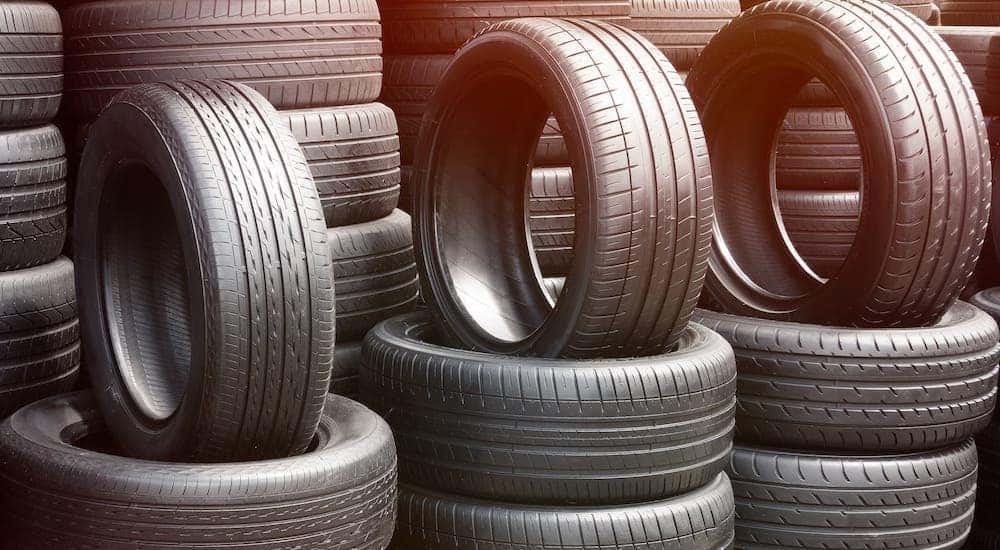Expert Morris Tire and Alignment Providers: Make Certain a Smooth and Safe Drive
Expert Morris Tire and Alignment Providers: Make Certain a Smooth and Safe Drive
Blog Article
Tire Solution: The Effect of Weather
When it concerns making sure optimal efficiency and safety when driving, recognizing the impact of climate condition on tire service is important. From scorching warm to icy roads, each weather component can substantially influence tire functionality and total driving experience. By diving right into the impacts of differing climate condition on tires, vehicle drivers can gain useful understandings that might boost their vehicle's efficiency and long life. In this conversation, we will explore the complex connection in between climate condition and tire solution, clarifying the importance of weather-specific tire upkeep techniques and factors to consider.
Warmth and Tire Efficiency
When revealed to heats, tires experience changes in performance that can dramatically affect automobile security and handling. The heat produced from long term driving or hot climate problems causes the tire rubber to soften, bring about decreased step life and raised wear. As the rubber comes to be softer, the tire's grip on the road diminishes, impacting stopping distances and overall traction. In extreme instances, excessive warmth can also create tire blowouts, positioning an extreme security threat to the lorry and its occupants.
Additionally, high temperature levels can accelerate the process of tire aging, triggering the rubber to weaken much more quickly. This can lead to cracks, protrudes, and various other kinds of damages that endanger the structural stability of the tire. To reduce the impacts of warmth on tire efficiency, chauffeurs must routinely check their tire stress, revolve tires to make sure also use, and check for any signs of damage. In addition, utilizing tires particularly created to hold up against high temperature levels can help keep ideal performance and safety when traveling.
Winter Effects
Cold climate problems can have a significant influence on tire performance and security. As temperature levels decrease, tire rubber can harden, bring about reduced grip on icy or snow-covered roads. In winter, tires might also shed atmospheric pressure much more quickly, which can influence managing and gas efficiency. Additionally, chilly temperature levels can create tire sidewalls to stiffen, enhancing the threat of damages from gaps or other road hazards.
To reduce the results of cold weather condition on tires, it is important to on a regular basis examine tire pressure and inflate them to the maker's advised degrees. Making use of wintertime or all-season tires designed for chilly weather conditions can also improve grip and hold on icy or snowy roadways - tires morris il. Proper tire maintenance, consisting of regular examinations for wear and damages, ends up being a lot more crucial during colder months to make sure ideal efficiency and safety
Rainy Issues Influence
During stormy problems, tire efficiency and safety and security can be significantly affected by the wet road surface areas and reduced exposure. The walk pattern of tires plays an important function in keeping grip on wet roads. Tires with worn-out footsteps are more prone to hydroplaning, where a layer of water constructs up in between the road and the tire surface, leading to loss of grip. To combat this, vehicle drivers should frequently inspect their tires for adequate tread deepness and think about spending in tires especially created for damp problems.

Snow and Tire Safety And Security
Snow-covered roads posture distinct difficulties for drivers, stressing other the value of proper tire option and upkeep. When driving in snowy conditions, having the ideal tires can make a substantial difference in safety and performance. Wintertime tires are designed with special rubber compounds and step patterns to offer better traction on snow and ice compared to all-season tires. The much deeper footsteps and sipes of winter tires assist hold the roadway much better, minimizing the threat of slipping and moving.
In addition to making use of winter season tires, it is critical to ensure they are effectively blown up. Winter can cause tire stress to go down, influencing grip and handling (tires morris il). Regularly inspecting and maintaining the proper tire pressure is vital for optimum performance in snowy problems

Weather-Related Tire Maintenance
When confronted with numerous climate problems, correct tire upkeep comes to be a vital aspect of car safety and security and performance. Weather-related tire upkeep incorporates a variety of practices focused on making sure ideal tire function and durability in various climate scenarios. One key facet of weather-related tire upkeep is click resources tire pressure policy. Fluctuating temperature levels can create tire stress to differ, affecting traction and gas efficiency. Routinely examining and readjusting tire stress according to supplier referrals is crucial for risk-free driving in transforming weather condition problems. Additionally, tire walk check my site deepness plays a significant role in handling different climate elements. Tires with ample tread depth provide much better hold on damp or icy roadways, reducing the risk of skidding or hydroplaning. Inspecting tire step on a regular basis and changing tires when tread wear gets to a particular depth is crucial for maintaining grip and security in negative climate. By prioritizing weather-related tire upkeep, vehicle drivers can improve safety, enhance automobile efficiency, and extend the life-span of their tires.
Verdict
In verdict, weather condition conditions have a substantial effect on tire efficiency and safety and security. From heat affecting tire pressure and put on to cold weather condition minimizing grip, it is necessary to consider the weather condition when preserving and utilizing tires. Rainy conditions can lower hold and cause hydroplaning, while snow can boost the danger of mishaps if tires are not appropriately equipped. Weather-related tire upkeep is critical in ensuring optimum performance and security when driving.
In this discussion, we will certainly explore the intricate relationship between climate conditions and tire solution, dropping light on the value of weather-specific tire maintenance techniques and considerations.

Report this page